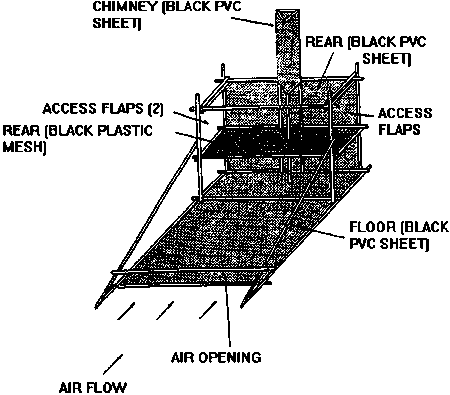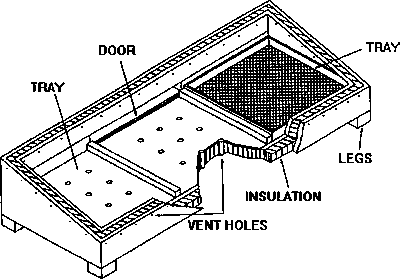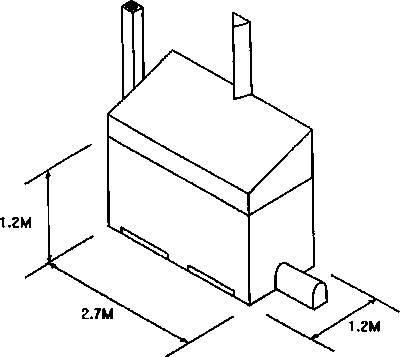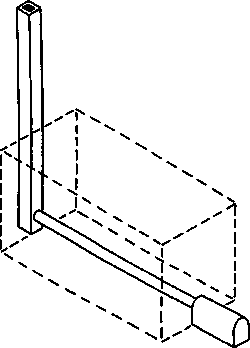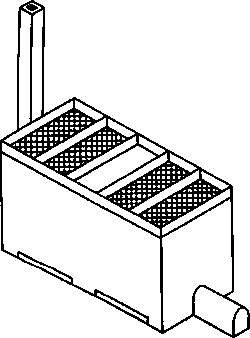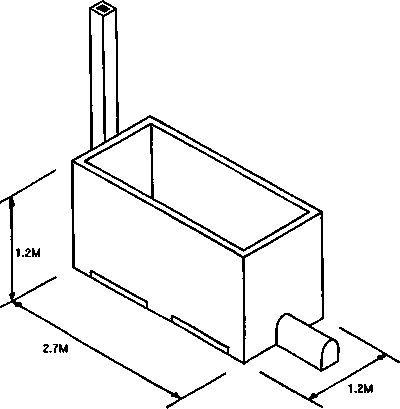Difference between revisions of "How to Process Spice"
Alessandro (talk | contribs) |
(→Equipment suppliers) |
||
| (3 intermediate revisions by one other user not shown) | |||
| Line 162: | Line 162: | ||
Note: This is a selective list of suppliers and does not imply endorsement by Practical Action'''.''' | Note: This is a selective list of suppliers and does not imply endorsement by Practical Action'''.''' | ||
| − | Kaps Engineers 831, G.I.D.C.<br /> Makarpura<br /> Vadodara - 390 010<br /> India<br /> Tel: +91 265 644692/640785/644407<br /> Fax: +91 265 643178/642185<br /> M.S.Stand (Batch Operation)<br /> Mills recommended for smaller equipment of lower throughput capacity or where frequent changeover of product is a criterion.<br /> Power: Electric | + | '''Kaps Engineers''' |
| + | 831, G.I.D.C.<br /> Makarpura<br /> Vadodara - 390 010<br /> India<br /> Tel: +91 265 644692/640785/644407<br /> Fax: +91 265 643178/642185<br /> http://www.kapsengineers.com/<br> | ||
| + | M.S.Stand (Batch Operation)<br /> Mills recommended for smaller equipment of lower throughput capacity or where frequent changeover of product is a criterion.<br /> Power: Electric | ||
| − | Jimo Agricultural Machinery Works<br /> Shandong Province<br /> China<br /> Cibler FFC 15 (with motor)<br /> Cibler FFC 23 (with motor)<br /> | + | '''Jimo Agricultural Machinery Works'''<br /> Shandong Province<br /> China<br /> Cibler FFC 15 (with motor)<br /> Cibler FFC 23 (with motor)<br /> |
| − | One Lehman Circle<br /> PO Box 41<br /> Kidron<br /> Ohio 44636<br /> USA<br /> Tel: +1 33 857 5757<br /> Fax: +1 33 857 5785<br /> Manual grain mill that adjusts from powder fine to flaky coarse. | + | '''Lehman Hardware Appliances''' <br> |
| + | One Lehman Circle<br /> PO Box 41<br /> Kidron<br /> Ohio 44636<br /> USA<br /> Tel: +1 33 857 5757<br /> Fax: +1 33 857 5785<br /> | ||
| + | http://www.lehmans.com/ <br> | ||
| + | Manual grain mill that adjusts from powder fine to flaky coarse. | ||
| − | Alvan Blanch<br /> Chelworth<br /> Malmesbury<br /> Wiltshire<br /> SN16 9SG<br /> UK<br /> Tel: +44 (0) 666 577333<br /> Fax: +44 (0) 666 577339 Website: http://www.alvanblanch.co.uk<br /> Mills and Grinders General for fine or coarse grinding of crops. Capacity: 15- 1000 kg/hour. Hand powered and motorised | + | '''Alvan Blanch'''<br /> Chelworth<br /> Malmesbury<br /> Wiltshire<br /> SN16 9SG<br /> UK<br /> Tel: +44 (0) 666 577333<br /> Fax: +44 (0) 666 577339 Website: http://www.alvanblanch.co.uk<br /> Mills and Grinders General for fine or coarse grinding of crops. Capacity: 15- 1000 kg/hour. Hand powered and motorised |
| − | <br /> Turma grinder<br /> | + | <br /> Turma grinder<br /> |
| − | + | '''Hindustan Engineering Company'''<br /> 25/31 Ropewalk Street<br /> Fort<br /> Bombay<br /> India<br /> | |
| + | http://www.hindustanenggco.com/index1.htm<br> | ||
| + | Hand operated mills | ||
| − | + | '''R Hunt & Co Limited'''<br /> c/o Bentall Simplex Industries Limited<br /> Foxhills Industrial Estate<br /> Scunthorpe<br /> DN15 8QW<br /> United Kingdom<br /> Atlas No 1 handpower grinding mill | |
| − | Acufil Machines SF.120/2<br /> Kalapatty<br /> Coimbatore - 641 035<br /> India<br /> Tel: +91 (0)422 866108/866205<br /> Fax: +91 (0)422 572640<br /> | + | '''Sabo Engineering Rajastan'''<br /> Kuchaman Road<br /> Rajastan 341 509<br /> India<br /> http://www.sabo-int.org/ite/index.html<br> |
| + | Pulco star grinder (with motor) | ||
| + | ''' | ||
| + | Acufil Machines''' SF.120/2<br /> Kalapatty<br /> Coimbatore - 641 035<br /> India<br /> Tel: +91 (0)422 866108/866205<br /> Fax: +91 (0)422 572640<br /> http://www.indiamart.com/acufilmachines/ <br /> Roasting equipment used for the roasting of dhal, spices, wheat and all food products that require pre-cooking or pre-roasting. Food Power by gas, battery, electric.<br /> Tray drier used for removing moisture from food products such as spices etc. Contains 12 trays. Capacity: 50 kg/charge Power: Electric | ||
</div> | </div> | ||
| Line 231: | Line 241: | ||
[[Category:Agriculture]] [[Category:Food Processing]] [[Category:Small Business]] [[Category:Products]] [[Category:Application]] | [[Category:Agriculture]] [[Category:Food Processing]] [[Category:Small Business]] [[Category:Products]] [[Category:Application]] | ||
[[Category:Practical Action Update]] | [[Category:Practical Action Update]] | ||
| − | [[Category:Requested translation to Spanish]] [[ | + | [[Category:Requested translation to Spanish]] |
| + | [[fr:Comment traiter les épices]] | ||
Latest revision as of 13:34, 26 December 2010
Contents
Small-Scale Spice Processing
Introduction
The processing and trade of spices has always been an important industry. The spice trade still has a significant impact on the economy of many countries eg Grenada, Sri Lanka and Indonesia. Small-scale processing of spices can be economically and socially successful.
Correct harvesting time
It is not possible to produce a good spice product from low quality harvested material. The main obstacle to correct harvesting is the crop being picked immature. This is usually due to fear of theft or the farmer requiring money urgently. However, every effort should be made to wait until the spices are fully mature.
Cleaning
The crop should be cleaned before processing. The first stage is to remove dust and dirt using a winnowing basket. This can be made locally from bamboo, palm or other leaves. Someone used to this work can remove the dust, dirt and stones quickly and efficiently (eg they could clean 100kg of pepper in an eight-hour day). Small machines are available for cleaning but they are rarely cost effective.
After winnowing the crop needs to be washed in water, all that is needed is two or three 15 litre buckets. For larger quantities a 1m³ sink/basin with a plug hole needs to be constructed. This can be made out of concrete. However, the water must be changed regularly to prevent recontamination of spices by dirty water. Only potable water should be used.
Drying
This is by far the most important stage in the process to ensure good quality spices. Inadequately dried produce will lead to mould growth. The sale value of mouldy spices can be less than 50% of the normal value. In addition the growth of food poisoning bacteria on some spices is a real danger if proper washing and drying is not carried out.
Drying during the dry season
During the dry season, sun drying is usually adequate to dry the produce. The simplest and cheapest method is to lay the produce on mats in the sun. However, there are problems associated with this method. Dust and dirt are blown onto the crop and unexpected rainstorms can re-wet the crop.
A solar dryer avoids these problems. The simplest type is the cabinet solar dryer, see Figure 1, which can be constructed out of locally available materials (eg bamboo, coir fibre or nylon weave).
For larger units (over 30kg/day) an 'Exell Solar Dryer' could be used, see Figure 2. However, the construction costs are greater and a full financial evaluation should therefore be made to ensure that a higher income from better quality spices can justify the additional expense.
Drying during the wet season
During the wet season or times of high humidity, which often coincides with the harvest of the spices, a solar dryer or sun drying can not be used effectively. An artificial dryer that uses a cheap energy source is necessary. This may be a wood or husk burning dryer or a combined wood burning and solar dryer. Figures 3-6 show a combined wood burning and solar drier which is based on the McDowell Dryer and has been used in Sri Lanka.
The crop should not be overheated (eg the maximum air temperature for drying pepper and cardamom is 50ºC). Neither should it be overdried (the final moisture contents for various spices are shown in Table 1).
|
Spice |
Maximum final moisture content % (wet basis) |
|
Mace |
6.0 |
|
Nutmeg, cloves |
8.0 |
|
Turmeric, coriander |
9.0 |
|
Cinnamon |
11.0 |
|
Pepper, pimento, chillies, ginger |
12.0 |
|
Cardamom |
13.0 |
Table 1: Spice moisture content
The drying of certain spices requires special conditions. For example, cardamom has to be dried in the dark so that the green colour is retained.
Grading
Spices can be graded by size, density, colour, shape and flavour. Machines are available for larger scale production units.
Grinding
Grinding may also add value but must be done carefully as there are difficulties. A whole, intact product can be easily assessed for quality whereas a ground product is more difficult. There is a market resistance to ground spices due to fear of adulteration or the use of low quality spices. This can only be overcome by producing a consistently high quality product and gaining the confidence of customers.
For small-scale production (up to 100kg/day) manual grinders are adequate. Small Chinese or Indian models designed for domestic spice grinding are suitable. A treadle or bicycle could be attached to make the work easier.
For larger scale production a small, powered grinding mill is needed and models are available that can grind 25kg/hour. A grinding mill needs to be placed in a separate and well ventilated room because of the dust. Great care is needed to ensure uniform sized pieces/powders after grinding and also to prevent heating of spices during grinding.
Packaging
The packaging requirements depend on:
1) the type of spice
2) whether it is ground or intact and
3) the humidity of storage
Most intact spices will store adequately in sacks/boxes if the humidity of the air is not too high. Ground spices can also be stored without special packaging if humidity is low but over long periods there is a loss of flavour and risk of contamination and spillage.
It is therefore better to store spices in a barrier film such as polypropylene (essential in areas of high humidity) to provide an attractive package, retain spice quality and prevent contamination and losses. If polypropylene is not available, cellulose film is adequate if it is heat sealable. Polythene is a poor substitute and should only be used for short term storage as it allows the flavour/aroma of the spices to escape.
Equipment suppliers
Note: This is a selective list of suppliers and does not imply endorsement by Practical Action.
Kaps Engineers
831, G.I.D.C.
Makarpura
Vadodara - 390 010
India
Tel: +91 265 644692/640785/644407
Fax: +91 265 643178/642185
http://www.kapsengineers.com/
M.S.Stand (Batch Operation)
Mills recommended for smaller equipment of lower throughput capacity or where frequent changeover of product is a criterion.
Power: Electric
Jimo Agricultural Machinery Works
Shandong Province
China
Cibler FFC 15 (with motor)
Cibler FFC 23 (with motor)
Lehman Hardware Appliances
One Lehman Circle
PO Box 41
Kidron
Ohio 44636
USA
Tel: +1 33 857 5757
Fax: +1 33 857 5785
http://www.lehmans.com/
Manual grain mill that adjusts from powder fine to flaky coarse.
Alvan Blanch
Chelworth
Malmesbury
Wiltshire
SN16 9SG
UK
Tel: +44 (0) 666 577333
Fax: +44 (0) 666 577339 Website: http://www.alvanblanch.co.uk
Mills and Grinders General for fine or coarse grinding of crops. Capacity: 15- 1000 kg/hour. Hand powered and motorised
Turma grinder
Hindustan Engineering Company
25/31 Ropewalk Street
Fort
Bombay
India
http://www.hindustanenggco.com/index1.htm
Hand operated mills
R Hunt & Co Limited
c/o Bentall Simplex Industries Limited
Foxhills Industrial Estate
Scunthorpe
DN15 8QW
United Kingdom
Atlas No 1 handpower grinding mill
Sabo Engineering Rajastan
Kuchaman Road
Rajastan 341 509
India
http://www.sabo-int.org/ite/index.html
Pulco star grinder (with motor)
Acufil Machines SF.120/2
Kalapatty
Coimbatore - 641 035
India
Tel: +91 (0)422 866108/866205
Fax: +91 (0)422 572640
http://www.indiamart.com/acufilmachines/
Roasting equipment used for the roasting of dhal, spices, wheat and all food products that require pre-cooking or pre-roasting. Food Power by gas, battery, electric.
Tray drier used for removing moisture from food products such as spices etc. Contains 12 trays. Capacity: 50 kg/charge Power: Electric
References and further reading
'This Howtopedia entry was derived from the Practical Action Technical Brief Small-Scale Spice Processing.
To look at the original document follow this link: http://www.practicalaction.org/?id=technical_briefs_food_processing
Cardamom Practical Action Technical brief
Cinnamon Practical Action Technical brief
Cloves Practical Action Technical Briefs
Cunmin Practical Action Technical Brief
Nutmeg and Mace, Practical Action Technical Brief
Turmeric, Practical Action Technical brief
Processing of Black Pepper, ITDG Food Chain No. 3
Spice Plants, M. Borget, 1993, CTA/MacMillan
Practical Action, The Schumacher Centre for Technology & Development
Bourton Hall, Bourton-on-Dunsmore, Rugby, Warwickshire CV23 9QZ, UK
Tel: +44 (0)1926 634400 Fax: +44(0)1926 634401 E-mail: infoserv@practicalaction.org.uk Web: http://www.practicalaction.org
Intermediate Technology Development Group Ltd Patron HRH -The Prince of Wales, KG, KT, GCB
Company Rag. No 871964. England Rag. Charity No 247257 VAT No 241 6164 92
Related Articles
- How to Preserve Food with Small Scale Drying Technologies
- How to Preserve Food by Drying
- How to Use Sun Power
- How to Make Chocolate
- How to Preserve Tomato
- How to Preserve Food with a Solar Dryer
- How to Process Spice
- How to Process Turmeric
- How to Build a Tray Dryer
- The Anagi Tray Dryer
- How to Dry Chillies
- How to Process Pepper
Useful addresses
Practical Action
The Schumacher Centre for Technology & Development, Bourton on Dunsmore, RUGBY, CV23 9QZ, United Kingdom.
Tel.: +44 (0) 1926 634400, Fax: +44 (0) 1926 634401
e-mail:practicalaction@practicalaction.org.uk
web:www.practicalaction.org

